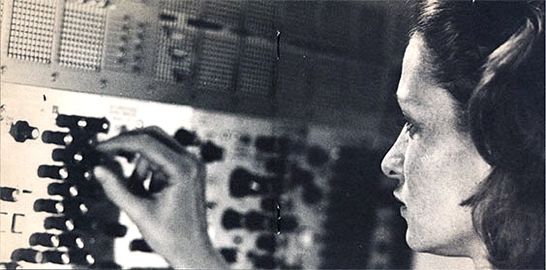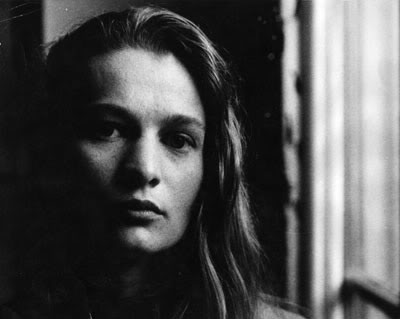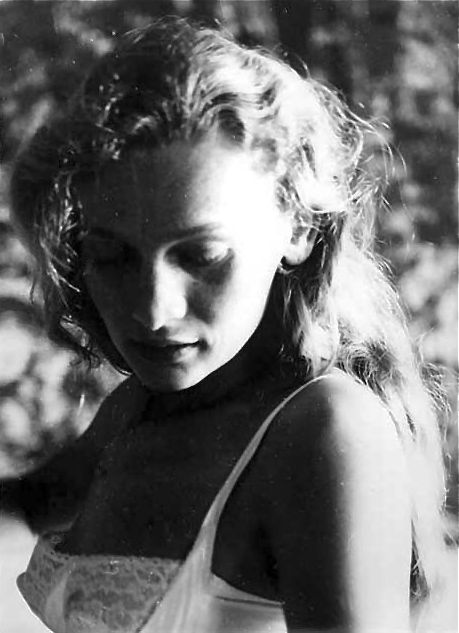A Portrait of Eliane Radigue, produced by the Austrian IMA (Institute for Media Archeology), observes Radigue in her workspace, operating her ARP 2500 synthesizer and talking about the process of composing and recording.
Eliane Radigue is a French electronic music composer that has worked extensively with the ARP 2500 analog synthesizer. She created her first synthesizer-based pieces around 1970, on a Buchla synth.

Official Bio:
 Eliane Radigue (born January 24, 1932) is a French electronic music composer whose work, since the early 1970s, has been almost exclusively created on a single synthesizer, the ARP 2500 modular system and tape.
Eliane Radigue (born January 24, 1932) is a French electronic music composer whose work, since the early 1970s, has been almost exclusively created on a single synthesizer, the ARP 2500 modular system and tape.
She was born in and grew up mostly in Paris in a modest family of merchants at Les Halles. Later she marries the French-born American artist Arman with whom she lived in Nice while raising their three children until 1967, then in Paris. She had studied piano and was already composing before having heard a broadcast by the founder of musique concrete Pierre Schaeffer. She met him shortly thereafter in the early 50s, she became his student, and worked periodically during visits to Paris at the Studio d’Essai. During the early 1960s she was assistant to Pierre Henry, during which time she created some of the sounds which appeared in his work. As her work gained maturity, Schaeffer and Henry considered her use of microphone feedback and long tape loops was moving away from their ideals, but her singular practice was still related to their methods.
Around 1970, she created her first synthesizer-based music at NYU at a studio she shared with Laurie Spiegel on a Buchla synthesizer installed by Morton Subotnick. Her goal by that point was to create a slow, purposeful “unfolding” of sound, which she felt to be closer to the minimal composers of New York at the time than to the French musique concrete composers who had been her previous allies.


It's a limitation of TV cookery programmes that you can't smell or taste the food. But to present a 14-minute documentary on a composer of (any) music accompanied only by mains hum seems completely dumb to me. Or was that her music?
An interesting person, but virtually zero information content. A missed opportunity.
Felt the same way – sort of haunting to see the old photos along with the documentary.
Would like to have heard more music, too, but it may just be that her music isn't "bite-sized."
For some reason I found this so very moving, this old lady speaking so passionately, and then you see her former beauty, striking in the photographs, and then you see her again as you would see some old friend who you've known for years and who haven't changed at all for your eyes…and all the painstaking process of making electronic music back then, that puts all us to shame, those paper scrolls, the mixing process, that labour of love for those sounds that come from inside…lovely and awesome at the same time.
For some reason I found this so very moving, this old lady speaking so passionately, and then you see her former beauty, striking in the photographs, and then you see her again as you would see some old friend who you've known for years and who haven't changed at all for your eyes…and all the painstaking process of making electronic music back then, that puts all us to shame, those paper scrolls, the mixing process, that labour of love for those sounds that come from inside…lovely and awesome at the same time.
It's a limitation of TV cookery programmes that you can't smell or taste the food. But to present a 14-minute documentary on a composer of (any) music accompanied only by mains hum seems completely dumb to me. Or was that her music?
An interesting person, but virtually zero information content. A missed opportunity.
It's a limitation of TV cookery programmes that you can't smell or taste the food. But to present a 14-minute documentary on a composer of (any) music accompanied only by mains hum seems completely dumb to me. Or was that her music?
An interesting person, but virtually zero information content. A missed opportunity.
zero information? Missed oportunity for what? She speaks about her creative process, her feelings, the way she kept track of everything on those paper scrolls…Search the net, the music is easy to find, that is an interview, not a DJ set.
Felt the same way – sort of haunting to see the old photos along with the documentary.
Would like to have heard more music, too, but it may just be that her music isn't "bite-sized."
Felt the same way – sort of haunting to see the old photos along with the documentary.
Would like to have heard more music, too, but it may just be that her music isn't "bite-sized."
Point taken, and I have found her music on the net. But there was an opportunity to include some examples, if only in the background, which would have made the whole thing more interesting. It's a fairly commonplace technique, used extensively in the recent Eno documentary, to excellent effect.
Point taken, and I have found her music on the net. But there was an opportunity to include some examples, if only in the background, which would have made the whole thing more interesting. It's a fairly commonplace technique, used extensively in the recent Eno documentary, to excellent effect.